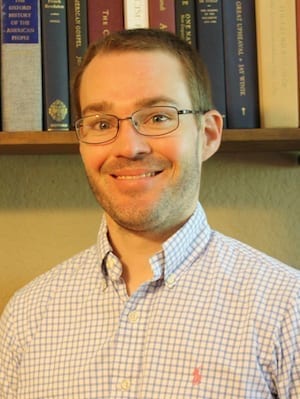
Highly religious adults in the United States readily affirm a divine mandate to care for creation, according to a Pew Research Center report published November 17.
Nearly all (92%) completely or mostly agree “that God gave humans a duty to protect and care for the Earth,” but fewer than half (42%) of this group say, “climate change is an extremely / very serious problem.”
This is the highest percentage affirming a creation care mandate among the three religious commitment levels Pew used in its report, but the lowest level of affirmation of climate change’s seriousness.
By comparison, 76% of adults with medium and 24% of those with low religious commitment affirm a divinely given duty to care for Earth, while 55% and 72%, respectively, see climate change as a serious problem.
The same pattern was seen in response to the statement, “Earth is getting warmer because of human activity.” A majority of adults with low religious commitment (70%) agreed, compared to 50% of those with medium and 39% of those with low religious commitment.
Overall, lower religious commitment correlated to a higher concern about global warming and climate change and to a great percentage of respondents attributing these environmental trends to human causation.
The report defined “high religious commitment” as people who report weekly religious service attendance, say religion is very important in their lives, and pray each day. “Low religious commitment” are respondents who seldom attend religious services or pray and who say religion is not important in their lives, with “medium religious commitment” encompassing all other respondents.
A majority of both Protestants (85%) and Catholics (75%) say “God gave humans a duty to protect and care for Earth,” compared to 55% of respondents in other faith traditions and 34% of the religiously unaffiliated. Evangelical (86%) and Historically Black (86%) Protestants were slightly more likely than mainline Protestants (82%) to affirm this statement.
When asked about climate change, 46% of Protestants and 57% of Catholics said it is an extremely / very serious problem, compared to 72% of people from other faith traditions and 70% of the religiously unaffiliated.
Within Protestantism, Historically Black Protestants (68%) were the most likely group to say climate change is an extremely / very serious problem, followed by mainline (55%) and evangelical (34%) Protestants.
Pew asked a series of questions to discern why climate change is not of greater concern given the significant levels of affirmation about a mandate to care for creation, finding that few respondents report hearing sermons on climate change and few discuss climate change with their fellow congregants.
In addition, around one-third of evangelical Protestants agree that “there are much bigger issues [than climate change] in the world today” (34%) and that “God is in control of the climate” (29%), while 19% say “climate change will not have a big impact on most people” and 15% do not believe it is happening. These were the highest percentages across all faith traditions surveyed.
In addition, only evangelical Protestants had a majority of respondents say it is extremely / very likely that in the next 30 years “environmental regulations will cause a gradual loss of individual freedoms” (56%) and that the “U.S. will overreact to global climate change by creating many unnecessary environmental regulations” (56%).
Evangelicals were also the least likely religious group to say it is morally wrong to consume “food that requires a lot of energy to produce” and to drive “a car that gets low gas mileage.”
While the level of religious affiliation and commitment does influence a respondent’s views on the environment and climate change, Pew’s analysis of the collected data found that “the main driver of U.S. public opinion about the climate is political party, not religion.”
Across all religious groups, those who identify as Democrat or lean Democrat are more likely to say that global warming is taking place and that climate change is a serious problem and to affirm that the changing climate is the result human action than those who identify as Republican or lean Republican.
“When political party identification and demographic characteristics are held constant, the marginal effects of religious affiliation and commitment on public opinion about climate change are much more muted – although still statistically significant in some cases,” the report said. “For instance, when controlling for political party, age, etc., evangelical Protestants are five points less likely than religiously unaffiliated respondents to say that global climate change is a serious problem, and those with high religious commitment are 10 points less likely than those with low religious commitment to hold this view.”
The full report is available here. The topline results are available here. The overall margin of error is plus or minus 1.6 percentage points.
Managing editor for news and opinion at Good Faith Media.

